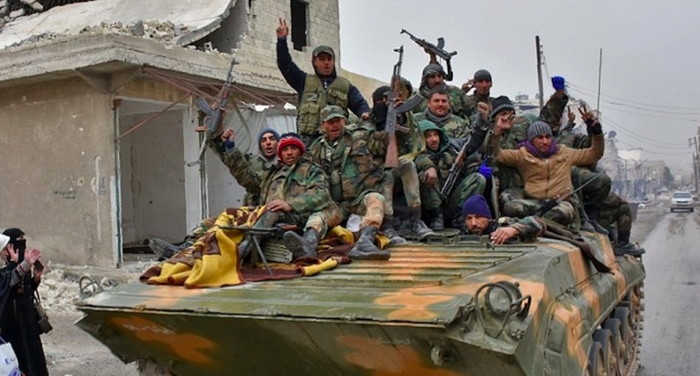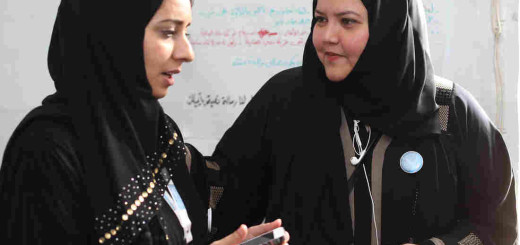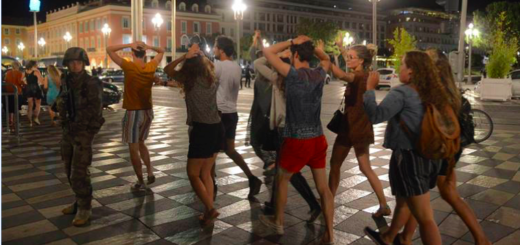Give peace a chance – Endless fighting in Syria

Editorial ,in the Statesman, Kolkatta,December 31, 2016
 (Note: Who created safe heavens for the planting and flourishing of an Islamic State, ISIS, in Iraq and Syria? It was done by the atrocious, abominable invasion and destruction of Iraq and hanging of Sadam by George Bush and the US withdrawal without replacing a comparable force like Sadam to keep all radical elements in Control, except an emasculated UN whistle blower not listened to by any super power.
(Note: Who created safe heavens for the planting and flourishing of an Islamic State, ISIS, in Iraq and Syria? It was done by the atrocious, abominable invasion and destruction of Iraq and hanging of Sadam by George Bush and the US withdrawal without replacing a comparable force like Sadam to keep all radical elements in Control, except an emasculated UN whistle blower not listened to by any super power.
Now all are having a free for all in Syria – Russia, Turkey, Syria’s dictator Assad. ISIS and US playing a low key, content to benefit from its oil wealth for which alone it invaded it. Everyone actively involved in this ongoing battle are those who know for certain that production of military weapons of mass destruction is a very profitable business for the countries concerned. Those who supply arms benefit from the buyers who test their murderous capacity in Syria or Iraq. The good will of a world body like UN is of no help in this situation.
It is in this context that those concerned about world peace and global cooperation should pray and think hard to find ways to strengthen the powers of UN to a degree capable of arresting and controlling rogue nations. Second option left is to arouse world opinion in support of a solitary Pope Francis who continues to speak out for peace and against massacre of innocents everywhere. Messengers of peace can never stop persuading individuals and nations from murderous ventures. james kottoor, editor)
It is fervently to be hoped that the cease-fire will hold. This is quite the most charitable construct that can be placed upon Vladimir Putin's announcement of a “truce deal” between the Syrian regime and the opposition groups.
Even the Russian President is scarcely confident about the agreement, brokered by Russia and Turkey and effective from the “zero hour of 30th December”, as the Syrian military command has announced. Markedly, it comes in the aftermath of the assassination of the Russian ambassador in Ankara and after the capture and evacuation of besieged Aleppo, however partial.
Decidedly cynical, realistic too, has been Putin's own response ~ “The agreements reached are, of course, fragile, and need a special attention and involvement.” There is no mention of a time-frame for the withdrawal of Russian forces from Syria; the Russian military will maintain a presence at an air base in Syria’s Latakia province and in the port of Tartus, the Kremlin has asserted. Nor for that matter is there any reference to the ISIS challenge.
Does Putin have the resources to keep his troops indefinitely in Assad's country? He is trying to assert his authority on the world stage but his ability to gamble in the Middle East is in itself questionable. Assad is said to be hanging to power by the skin of his teeth; the moment Russia scales down its involvement, his survival will be under a cloud. The Syrian National Coalition, which is one of the main opposition groups, has lent support to the agreement, urging “all parties to abide by it”.
It is as yet uncertain whether the entire opposition ~ a fractious grouping ~ has concurred with the pact. Indeed, the uncertainty centres precisely over which groups were included in the deal. At two ends of the scale, both America and ISIS have been excluded in the greater scheme of things. It is a salutary development that the Syrian army has called for an immediate end to the fighting, and it now remains for Assad's forces to walk the talk.
In terms of geostrategic power-games, a striking feature has been the exclusion of the United States from recent negotiations. America is unlikely to attend the next round of peace talks in Astana, the capital of Kazakhstan, a Russian ally. Is it possible that the exclusion of the US mirrors its differences with both Turkey and Russia over Washington’s policy on Syria?
Altogether, there may be hope yet that the increasingly prevaricating United Nations has readily welcomed the agreement. It must above all save civilians, facilitate the delivery of humanitarian assistance across Syria, and most particularly Aleppo, pave the way for productive talks in Astana, and not least bring Assad and ISIS to their knees. The road ahead is rocky, but there is mild comfort in the thought that the year ends with a scintilla of hope.
















